US counter-terrorism officials backed a high-stakes negotiation involving two of the world’s most prominent jihadi clerics as well as former Guantánamo detainees in an attempt to save the life of an American hostage held by Islamic State, the Guardian can reveal.
Emails seen by the Guardian show how tentative talks with the spiritual leadership of Isis to secure the release of Abdul-Rahman (Peter) Kassig began in mid-October and ran for several weeks, with the knowledge of the FBI.
Kassig – who converted to Islam while imprisoned for more than a year – was the most recent western hostage to be killed by Isis. The jihadi group announced his death on 16 November with a typically grisly video.
The ultimately unsuccessful initiative to save him was the brainchild of a controversial New York lawyer, Stanley Cohen, who has represented Osama bin Laden’s son-in-law and members of Hamas in US courts.
Cohen persuaded two senior clerics aligned with al-Qaida to intervene with Isis on behalf of the American. One, Abu Muhammed al-Maqdisi, is regarded as the world’s most influential living jihadi scholar, while the other, Abu Qatada, was once branded by a Spanish judge as al-Qaida’s “spiritual ambassador” in Europe.
Cohen – who is due to go to prison for 18 months in January after pleading guilty to federal tax offences last April – also engaged another of his jihadi contacts in the effort, a Kuwaiti al-Qaida veteran and one-time Guantánamo Bay detainee whom the Guardian has been asked not to name for security reasons.
In response to Cohen’s request for help to free Kassig, the Kuwaiti replied: “We want to save him.”
Their aim was not just to free Kassig but to get Isis permanently out of the business of taking and murdering civilian hostages, a tactic that has horrified many jihadis and deepened the theological battle between the group and al-Qaida.
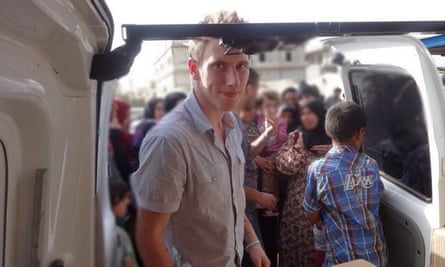
FBI staff confirmed that senior officials at its headquarters were kept abreast of Cohen’s actions. The bureau also confirmed it would pay $24,000 (£15,000) of expenses incurred by Cohen and his Arabic translator during 17 days in the Middle East. Had it been successful, the negotiation would have carried a high risk for the US. In return for renouncing hostage-taking, Isis was offered a clerical détente: Maqdisi, Abu Qatada and other senior religious figures in al-Qaida’s sphere of influence would stop publicly denouncing Isis as extremists without proper Islamic qualifications.
Cohen flew to the Middle East on 13 October and drew up a “protocol” for the FBI and Jordanian authorities to sign off that would have allowed Maqdisi to make contact with his former student Turki al-Binali, a young Bahraini cleric who is the chief “scholar at arms” for Isis.
Dated 22 October, the protocol email reads: “Jordan agrees that it will not require him [Maqdisi] to make the calls [to Isis] from one of its intelligence locations, nor file charges against him for the calls or otherwise interrogate him about them.
“The calls will not be controlled or tracked for purposes of military or drone attacks. The sheikh, if allowed, would also like to discuss the need for a complete halt to taking hostages that are journalists, relief workers, civilians and Muslims and obviously execution of any of them by any means.” The next day a reply from a counter-terrorism official in the Washington field office said: “Was just told by my co-worker in the country you’re in, the call is a go.”
An FBI official told the Guardian the bureau did not obtain or provide assurances that Maqdisi or anyone else involved in this effort would be immune from possible reprisal after reaching out to Isis.
But Cohen believed the deal had been agreed and Maqdisi then began a series of exchanges with Binali through the social media platform WhatsApp.
Cohen said Isis gave him assurances through intermediaries that Kassig would be kept alive while talks were ongoing. The lawyer said Maqdisi told him on 26 October that he was confident Kassig would be released, based on the continuing dialogue with the Isis cleric.
But the next day, Jordanian security services arrested Maqdisi for “using the internet to promote and incite views of jihadi terrorist organisations” and the negotiations collapsed.
Cohen said he felt betrayed because the protocol he drew up to prevent Maqdisi’s arrest had been breached. “I feel we lost a golden opportunity to not only save Kassig but other potential hostages.”
Cohen believed from his email dialogue with the FBI official that the US had attempted to reach out to their Jordanian counterparts to see if they could release Maqdisi to get the talks back on track. The FBI has not commented on whether other US agencies may or may not have been involved.
Maqdisi remains in prison in Jordan, but Abu Qatada confirmed the details of the negotiation channel.
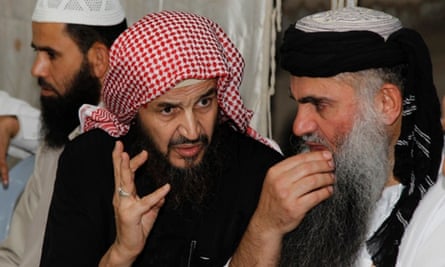
Speaking to a major western news outlet for the first time, he said he worked with Maqdisi to help save Kassig and wrote to an Isis leader urging him to release the American aid worker.
He told the Guardian he was entirely hostile towards the militant group which has swept through swaths of Syria and Iraq. “For Isis to claim that they are a state is a tall order; in fact they are a bunch of thugs and gangsters and have no religious credentials. None whatsoever.”
The Jordanian government has not responded to detailed questions from the Guardian about why Maqdisi was arrested or if it was aware of his role in the Kassig talks.
The FBI’s chief spokesman, Paul Bresson, said: “The FBI’s top priority in international kidnapping investigations is the safe return of our citizens. Because the circumstances are different in each case, the FBI works closely with the rest of the US government to consider all viable and legally permissible options to secure their release. To preserve these options, and out of respect for their loved ones, we rarely discuss these details publicly.”
The Guardian provided the Kassig family with the details of the failed negotiation effort before publication. They declined to respond.
Additional reporting by Ed Pilkington, Ian Black and George Arnett.

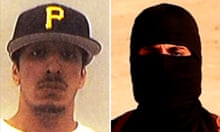
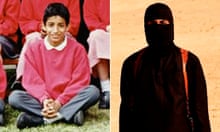
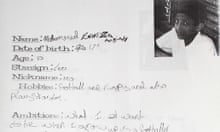

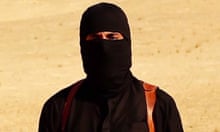
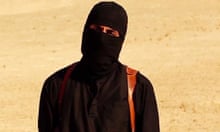
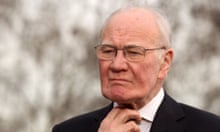
Comments (…)
Sign in or create your Guardian account to join the discussion